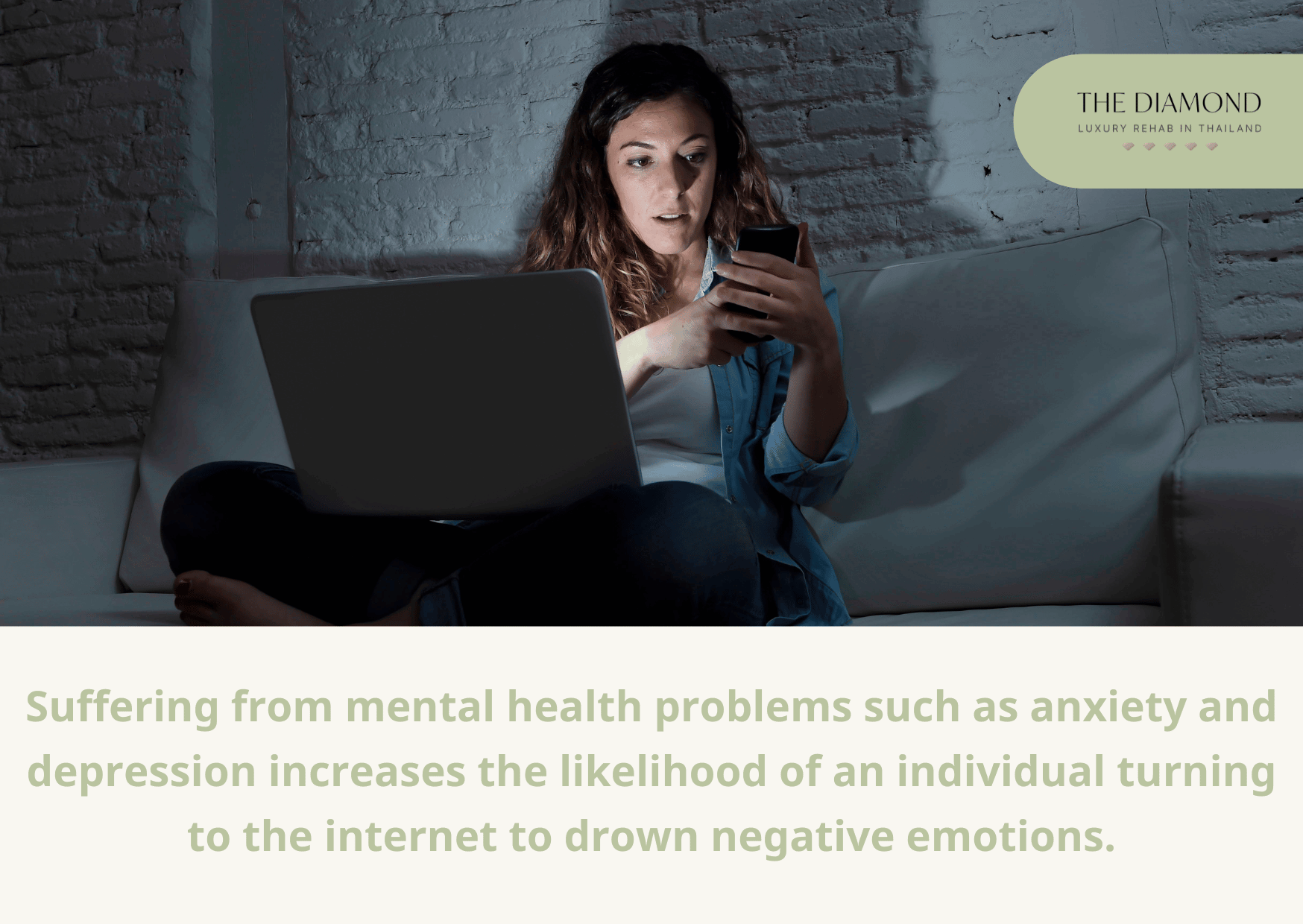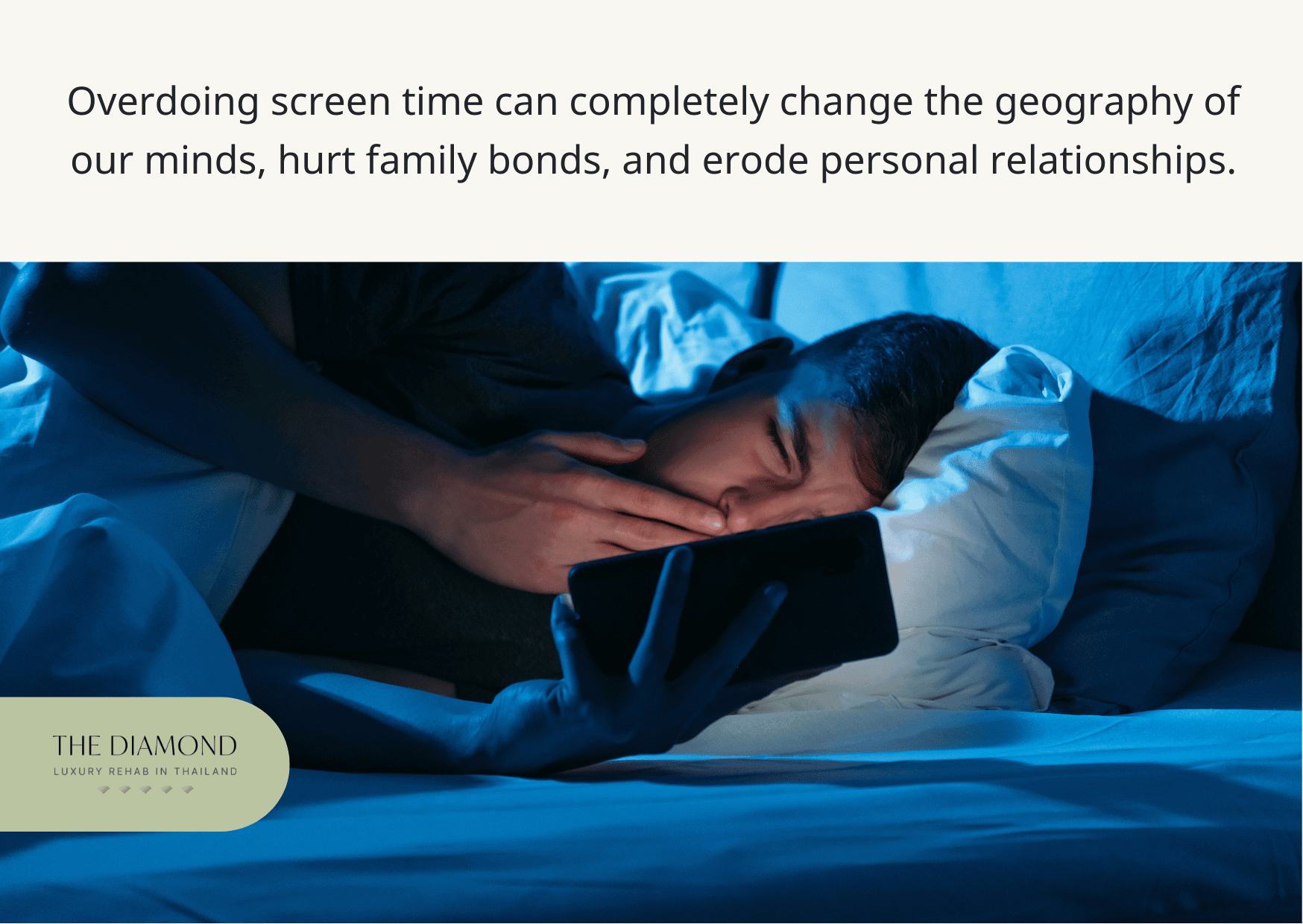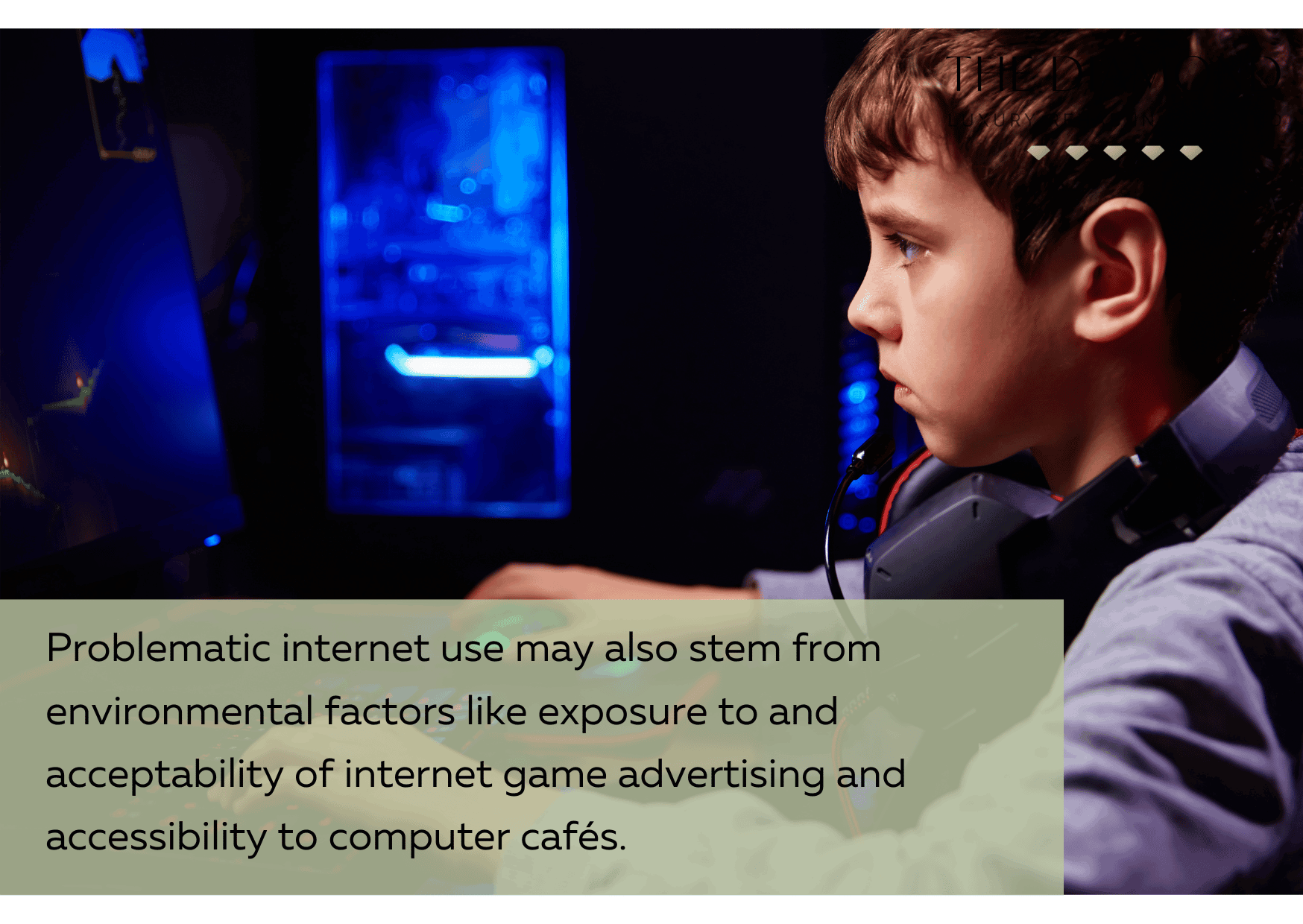5 Types of Internet addiction and differences

The internet is a place of endless possibilities, and it has undeniably changed the course of humanity, making it one of the greatest inventions in our history. However, just like many things in life, too large an amount of an otherwise enjoyable or beneficial thing can be harmful.
For instance, similar to other harmful substances, screen time that is poorly managed can become an addiction that can negatively affect your health and relationships. Internet addiction refers to the use of the internet in an unhealthy way, which also encourages unhealthy behaviors.
And because the internet is a vast ocean of information, being overly dependent on it also covers a broad range of problems involving the technological medium. The different types of internet addiction include cybersex addiction, compulsive information seeking, net compulsions, gaming addiction, and cyber relationship addiction.
There is no single cause and effect of excessive internet use. Instead, a complex interplay of factors contributes to the development of addiction, including genetics, certain environmental factors, and co-occurring mental health disorders, such as anxiety and depression. Needless to say, excessive internet use can cause health ramifications similar to those of substance abuse or other forms of addiction. Some effects of internet addiction include failing memory, emotional instability, relationship issues, strained vision, muscle or joint pain, and financial ruin.
1. Cybersex addiction
Cybersex addiction is a sexual addiction that involves virtual sexual activity on the internet. The term “cybersex” also refers to various kinds of sexually explicit content available online that can easily be accessed nowadays. The causes of cybersex addiction include poor impulse control, intimacy issues, and a history of multiple addictions to drugs, alcohol, tobacco, food, gambling, or sex.
Needless to say, the condition does not only impact the afflicted person but also negatively affects their spouse and family. The effects of cybersex addiction may manifest in psychological and behavioral ways and may include decreased productivity at work, impaired personal relationships, loss of self-esteem, isolation, and depression.
2. Compulsive information seeking
Compulsive information seeking is characterized by the constant need to gather new information in technological contexts. The vast amount of information that is readily available online has caused some people to develop an uncontrollable urge to continually seek more information.
The causes of compulsive information seeking include anxiety, a novelty-seeking personality, and increased dopamine production in the brain. The condition can also lead to reduced work productivity and possibly job loss, and eventually financial problems.
3. Net compulsions
Net compulsions are a form of internet addiction disorder that involves virtual activities that are financially and socially damaging, including online gambling, compulsive stock trading, online shopping, and online gaming. The causes of net compulsions include ease of access to online stores and casinos, underlying mental health issues, and family or friend influence. Because of the huge amount of money involved to fuel this type of internet addiction, net compulsions very often lead to financial difficulties, impaired personal relationships, legal concerns, poor work performance, and even suicidal ideation.
4. Computer or Gaming addiction
Computer or gaming addiction involves excessive screen time spent playing video games to the point that it interferes with the afflicted person’s daily functioning. Now that the internet continually provides new games that come with better characters and more challenging quests, it is not surprising that some people would get addicted to these video games.
The causes of computer addiction include hyperarousal through dopamine surges in the brain, low self-esteem, social anxiety, desires for escapism, and addictive game design. The consequences associated with a computer or gaming addiction can also be severe and may include obesity, difficulty sleeping or insomnia, lack of social skills, neck and back problems, eye strain, and difficulties with work or school.
5. Cyber (online) relationship addiction
Cyber or online relationship addiction is the compulsive need to find and maintain online relationships. These cyber-affairs are often formed in chat rooms, social networks, and virtual messaging platforms, but can also occur anywhere an individual can interact with other people online.
Engaging in online addictive behaviors may be caused by the anonymity that the internet offers, convenience, and escape motives. When someone has turned to the computer for intimacy, real-life relationships may suffer and may lead to relationship problems, divorce, and an inability to maintain real-world connections.

What is an Internet addiction?
Internet addiction is defined as a compulsive need to spend an excessive amount of time using online media despite adverse effects on one’s health, work, finances, and personal relationships.
Sometimes called digital use disorder, internet addiction may not be listed as of the moment in the American Psychiatric Association’s Diagnostic and Statistical Manual of Mental Disorders, Fifth Edition (DSM-5), but one thing remains true – the compulsion to be online encourages unhealthy habits that impact people the same way diagnosable addictions do.
Who is most vulnerable to Internet addiction?
The population that is most vulnerable to internet addiction is adolescents. Having grown up in the digital age, this group has been familiar with the internet and the means to access it from an early age.
Several studies in addiction have indicated that being exposed to substance use at an earlier age is an important predictor of addiction and risky behaviors later in life. The same thing can also be said about internet use at an early age.

What are the causes of Internet addiction?
The causes of internet addiction include surges of dopamine in the brain, genetics, underlying mental health conditions, and environmental factors. In some people, prolonged internet use produces a pleasurable surge of dopamine in the brain. Dopamine is a brain chemical that produces a euphoric effect that internet addicts constantly chase by repeatedly engaging in addictive behaviors around the internet.
Genetics also plays a role in the development of online addiction. Evidence exists that having lower dopamine or serotonin levels than most people increases the possibility of someone engaging in what the brain perceives to be a pleasurable experience to achieve the same desired effect.
Suffering from mental health problems such as anxiety and depression increases the likelihood of an individual turning to the internet to drown negative emotions. Instant gratification through virtual interactions may easily make someone hooked on the internet.
Lastly, problematic internet use may also stem from environmental factors like exposure to and acceptability of internet game advertising and accessibility to computer cafés. These factors are important predictors of internet addiction in the adolescent population.
What are the effects of Internet addiction?
The effects of internet addiction can be short-term or long-term, and both can be damaging to an individual’s body and mind. These include back pain, weight loss or gain, failing memory, strained vision, emotional instability, poor family relationships, and financial problems.
The consequences of the condition can also go both ways, as adverse mental health is both a cause and effect of internet addiction. While negative emotions might make someone dependent on the internet for feelings of relief, excessive internet usage can also lead to mental health problems such as anxiety, depression, obsessive-compulsive disorder (OCD), and low family relationships. Being farther into the addiction can also cause major health effects such as carpal tunnel syndrome, hearing loss, and heart trouble.

How is Internet addiction created?
Internet addiction is created by being hooked on digital technologies and their persuasive, addictive designs. As with anything good, too much of it can be bad for you. Overdoing screen time can completely change the geography of our minds, hurt family bonds, and erode personal relationships.
How can I break my Internet addiction?
If you suspect that you are addicted to the internet, there are self-help strategies you can take to manage your screen time. Some ways how you can break your internet addiction are listed below.
- Turn off notifications: Hearing alerts from different social media apps is like having your phone shout at you to get your attention. When you turn off your notifications, you can reduce your screen time while still having access to the apps you often use. Only this time, you have more control over when you pick up your device and not the other way around.
- Manage your time online: As with other forms of addiction, it could be a bad idea to quit the internet cold turkey. In fact, it may not be ideal to totally get rid of it, considering that it has many uses for school or work. You should instead create a plan of how many hours you should only spend on the internet each day. For instance, from six hours, you can cut down your screen time to three hours and then gradually reduce the amount of time until you reach your target limit.
- Engage in healthy activities during your free time: Someone who suffers from digital addiction tends to let go of activities they once enjoyed. However, engaging in these internet-free activities once again may help you stay focused and avoid digital distractions.
- Spend quality time with friends or family members: Poor personal relationships are one of the most serious consequences of internet addiction. Therefore, making it up to your spouse, children, or friends through physical time free of mobile phones will help you reconnect with them.
- Examine the link between your emotional state and excessive internet use: Make an effort to understand what fuels your internet addiction. Going online to escape negative moods or look for affirmation only make these negative feelings come back even worse. Instead, you may try using the internet for more productive things, such as school or work-related activities.
Other ways how to overcome internet addiction include:
- Commit to a device-free dinner
- Block potentially addictive websites
- Disconnect from technology in the outdoors
- Find a support group in your area
- Consider seeing a therapist

Is Internet addiction a mental illness?
No, internet addiction is not technically recognized by the Diagnostic and Statistical Manual of Mental Disorders, Fifth Edition (DSM-5) as a mental illness. Authors of the psychiatry text say that internet use disorder still needs a lot of additional studies to be recognized as a diagnosable clinical mental health problem.
Still, this does not change the fact that excessive screen time is a growing concern among many people, especially a lot of parents. Furthermore, the condition shares the basic hallmarks of other forms of addiction, such as preoccupation with addictive behavior and the need to spend more and more time online to achieve a pleasurable effect.
As researchers continually explore the repercussions of internet use these days, we may be closer to major developments on internet addiction and the best ways to curb it.
